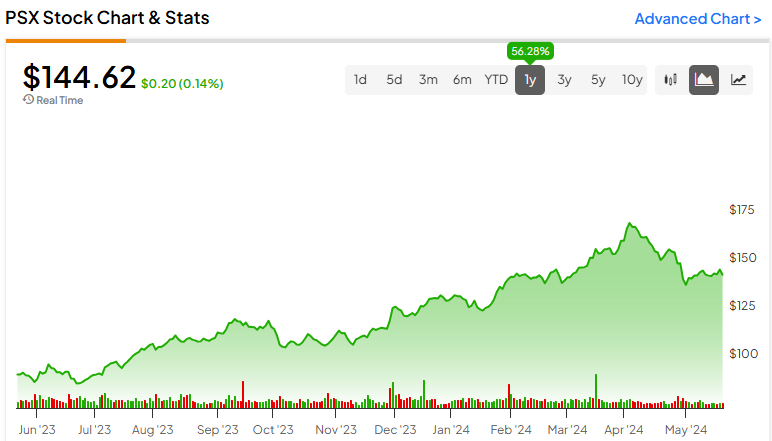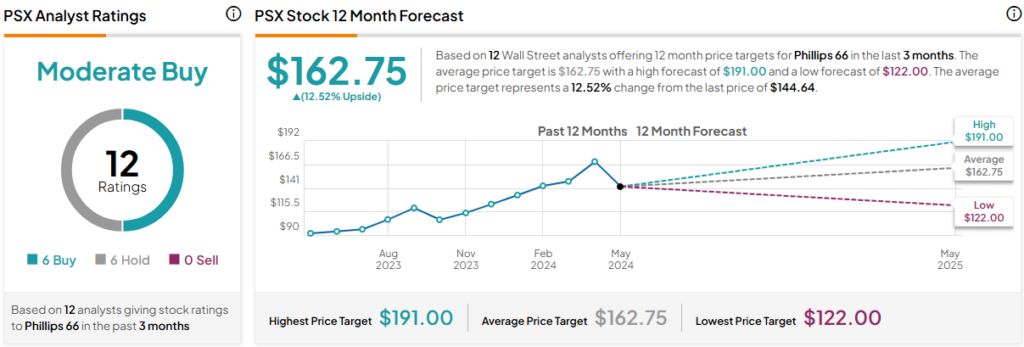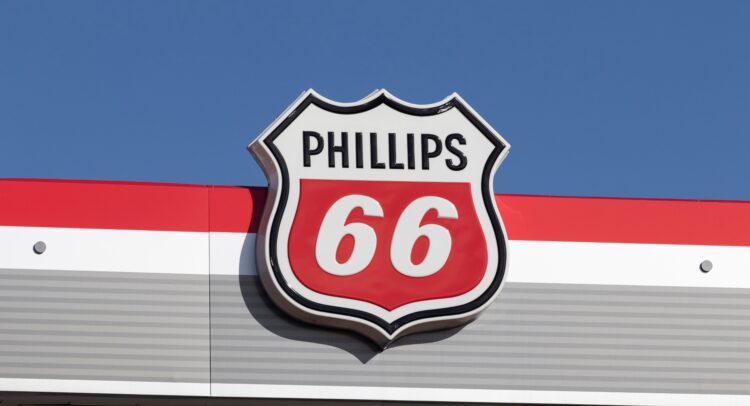On the surface, downstream hydrocarbon player Phillips 66 (NYSE:PSX) – which specializes in refining and retailing fuel – might seem like an enterprise facing a relevancy dilemma. After all, the mantra is that EVs represent the future of mobility. However, actual sales data suggests otherwise, and that means Phillips 66 could be much more relevant than many investors realize. As such, I am bullish on PSX stock.

Faltering EV Demand Should Boost PSX Stock
According to The New York Times, sales of plug-in electric-powered vehicles are slowing. Fundamentally, there are many reasons why this is the case. However, the most obvious answer stands out: EVs are expensive. In 2022, the average price of a new EV clocked in at almost $63,000. This year, prices have come down some. However, they’re still pricey at around $60,000.
Further, investors can read between the lines. For years now, the sector price war caused a negative domino effect, forcing competitors to slash their prices increasingly lower. In theory, this dynamic is good for customers. However, a mismatch between pricing and expectations exists. One can make this argument because the price war has only been intensifying.
By logical deduction, the cheapened prices are still not enough to attract customers at scale. So, companies must slash their prices again, which then causes a response among peers. So, who’s winning in this ecosystem?
Believe it or not, it’s Toyota (NYSE:TM). A legacy automotive giant that was late to the party regarding pivoting to EVs, its tardiness could be its saving grace. Sales of Toyota hybrids have been skyrocketing, which isn’t surprising.
The platform features the best of both worlds, with a battery pack to enhance the range and efficiency of the underlying petrol-powered combustion engine. At the same time, hybrid drivers can use already-existing infrastructure — the ubiquitous gasoline (and diesel) service station.
In that sense, hybrids aren’t truly electric. However, the ability to fill up practically anywhere quickly and effortlessly is a major plus. That’s obviously a plus for PSX stock. Moreover, the average fuel efficiency of a hybrid car is around 60 miles per gallon.
With efficiency like that, it’s a much harder sell for EV manufacturers to convince customers to go all-electric. Subsequently, with more people driving hybrids, that should translate to an extended relevance runway for PSX stock.
A Tough Economy Could Lift Phillips 66
Interestingly, another point that could help PSX stock rise above the muck is the muck itself. Currently, the consumer economy faces numerous challenges, most pressingly high inflation and elevated borrowing costs. Both of these headwinds combined make ownership of EVs extraordinarily difficult: the price tag is steep, and financing such expensive vehicles becomes even more onerous.
By logical deduction, then, those who eschew EVs for hybrids will likely stick with their vehicles for longer than anticipated. Interestingly, the average age of vehicles on U.S. roadways currently stands at 12.5 years. One study discovered that, on average, Americans owned their cars for about eight years. That’s a fairly lengthy number, and it could become longer.
In addition to the inflation and interest rate problems, businesses are feeling the pressure. In response, many are laying off their workers. Naturally, if companies feel the need to reduce overhead, households are also under tremendous stress. That being the case, regular folks will not want to consistently purchase big-ticket items. Essentially, they’ll be “stuck” with their hybrids until the economy substantively improves.
I would argue that this dynamic is surprisingly positive for hydrocarbon-related downstream enterprises. For instance, Valvoline (NYSE:VVV) makes an enticing bullish case because more hybrids on the road means greater demand for quick-service oil changes, something Valvoline specializes in.
For PSX stock, the relevance is obvious. More hybrids equate to more demand for fuel stations. Not only that, but this circumstance can create a feedback loop that favors Phillips 66.
Should hybrid vehicle owners keep their cars for a decade or longer, that’s potentially 10 years of a market segment that EV manufacturers won’t be able to penetrate. Even at the average eight-year period, that’s a long time to wait, especially when EV makers need positive momentum now.
And who knows? Hybrid vehicle owners may love their cars so much that they stick with the hybrid platform.
A Forecast Adjustment Seems Necessary
For Fiscal 2024, analysts, on average, are seeking revenue to land at $146.12 billion. If so, that would represent a 2.5% decline from last year’s print of $149.89 billion. That may be one reason why some investors are hesitant to acquire PSX stock. However, this lowly forecast arguably needs an adjustment.
In contrast, the most optimistic target calls for revenue of $161.39 billion. That would be up roughly 8% from last year’s sales. While there’s no guarantee that sales will run up that high, this forecast may be more realistic.
To recap, EV sales are falling while hybrid vehicle sales are rising. And because of the economic situation, drivers may hold onto their hybrids for longer. That’s positive for PSX stock, not negative.
Is Phillips 66 Stock a Buy, According to Analysts?
Turning to Wall Street, PSX stock has a Moderate Buy consensus rating based on six Buys, six Holds, and zero Sell ratings. The average PSX stock price target is $162.75, implying 12.5% upside potential.

The Takeaway: Follow the Math on PSX Stock
Although hydrocarbon enterprises like Phillips 66 appear anachronistic, given the push toward EVs, the electric-only sector’s demand is falling. At the same time, hybrid vehicles – which run on hydrocarbons – have seen their demand soar. Fundamentally, then, PSX stock comes down to a math and logic argument. Moving forward, there will be a surprisingly large number of gasoline-consuming vehicles on the road, which would give an extended lifeline for oil companies.
Questions or Comments about the article? Write to editor@tipranks.com
















